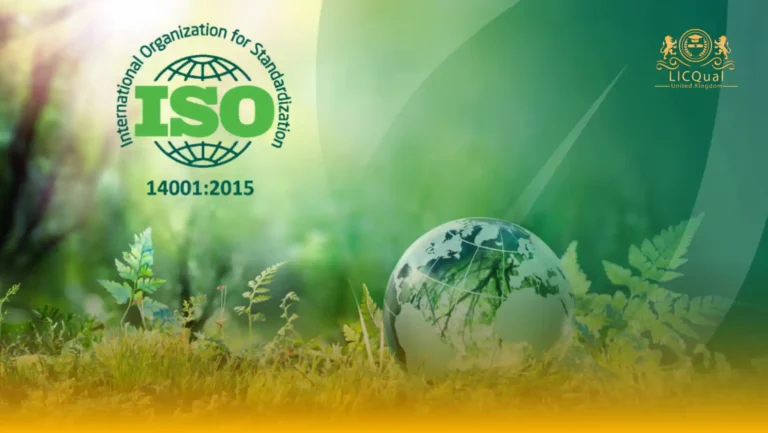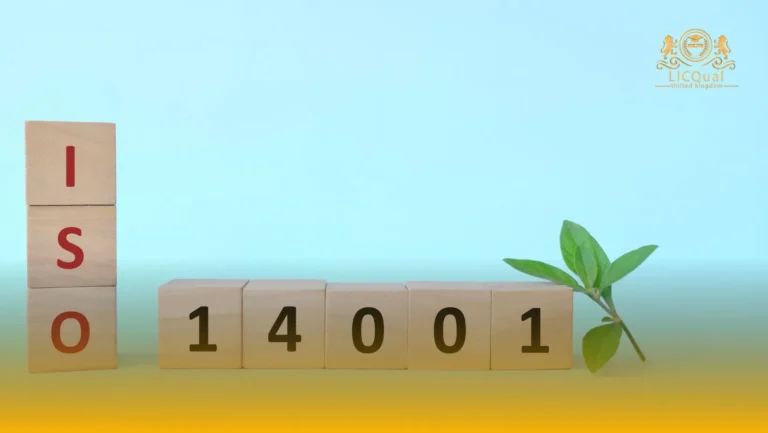The LICQual ISO 9001:2015 QMS course is designed for professionals who aspire to become experts in auditing quality management systems. This comprehensive training program covers the key principles of ISO 9001:2015, empowering participants to lead and manage ISO audits with confidence and precision.
By enrolling in this course, you will gain a deep understanding of the internationally recognized ISO 9001:2015 standard, its requirements, and the critical auditing techniques required to assess an organization’s quality management system (QMS). Whether you are looking to enhance your career prospects or play a key role in ISO implementation, this course will equip you with the skills necessary to perform effective audits.
The LICQual ISO 9001:2015 QMS course offers an in-depth exploration of ISO 9001:2015 standards and auditing processes. You will begin by gaining a thorough understanding of the 9001:2015 framework and its application within organizations. The course covers audit principles, planning, conducting, and reporting, ensuring that you are well-prepared to lead an ISO audit team.
Through hands-on exercises and real-world case studies, you will master the critical skills of effective communication, problem-solving, and decision-making in audit scenarios. By the end of the course, you will be fully equipped to conduct internal and external audits, report findings, and recommend improvements for continuous organizational development. This course is ideal for quality professionals, auditors, and those seeking to lead ISO 9001:2015 QMS audits, helping you take your career to the next level.
Course Overview
Qualification Title
LICQual ISO 9001:2015 QMS
Total Units
6
Total Credits
40
GLH
120
Qualification #
LICQ2200100
Qualification Specification
To enroll in the LICQual ISO 9001:2015 QMS, applicants must meet the following criteria:
|
Qualification# |
Unit Title |
Credits |
GLH |
|---|---|---|---|
|
LICQ2200100-1 |
Introduction to ISO 9001:2015 and Quality Management Systems |
8 |
24 |
|
LICQ2200100-2 |
Auditing Fundamentals and ISO 19011:2018 Guidelines |
8 |
24 |
|
LICQ22000100-3 |
Audit Process and Techniques |
6 |
18 |
|
LICQ22000100-4 |
Reporting and Communication |
6 |
18 |
|
LICQ22000100-5 |
Continual Improvement and Audit Program Management |
6 |
18 |
|
LICQ22000100-6 |
Leadership and Ethical Considerations in Auditing |
6 |
18 |
By the end of this course, learners will be able to:
Introduction to ISO 9001:2015 and Quality Management Systems
- Understand the structure, principles, and key requirements of ISO 9001:2015.
- Identify how Quality Management Systems (QMS) align with organizational goals and drive continuous improvement.
- Demonstrate the application of ISO 9001:2015 principles in establishing a robust QMS within an organization.
Auditing Fundamentals and ISO 19011:2018 Guidelines
- Gain a comprehensive understanding of auditing principles, practices, and methodologies.
- Apply ISO 19011:2018 guidelines to plan and perform audits in accordance with best practices.
- Recognize the roles and responsibilities of an auditor and understand the audit process lifecycle.
Audit Process and Techniques
- Apply structured audit techniques, including audit planning, execution, and follow-up.
- Demonstrate skills in evidence collection, analyzing audit findings, and assessing conformity with ISO 9001:2015.
- Utilize various audit tools and methodologies to evaluate the effectiveness of the QMS.
Reporting and Communication
- Develop clear and concise audit reports, effectively documenting findings and non-conformities.
- Communicate audit results to stakeholders and management, providing actionable insights for improvement.
- Understand the importance of effective communication throughout the audit process.
Continual Improvement and Audit Program Management
- Apply the principles of continual improvement within the audit process and the broader QMS.
- Manage and oversee audit programs, ensuring they align with organizational goals and contribute to ongoing improvements.
- Develop strategies for auditing that support long-term quality improvements and performance excellence.
Leadership and Ethical Considerations in Auditing
- Demonstrate leadership skills in managing audit teams and conducting audits impartially.
- Uphold ethical standards and maintain confidentiality and professionalism during the auditing process.
- Ensure compliance with auditing best practices while fostering an ethical audit environment.
This diploma is ideal for:
Assessment and Verification
All units within this qualification are subject to internal assessment by the approved centre and external verification by LICQual. The qualification follows a criterion-referenced assessment approach, ensuring that learners meet all specified learning outcomes.
To achieve a ‘Pass’ in any unit, learners must provide valid, sufficient, and authentic evidence demonstrating their attainment of all learning outcomes and compliance with the prescribed assessment criteria. The Assessor is responsible for evaluating the evidence and determining whether the learner has successfully met the required standards.
Assessors must maintain a clear and comprehensive audit trail, documenting the basis for their assessment decisions to ensure transparency, consistency, and compliance with quality assurance requirements.







